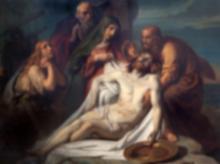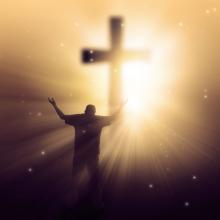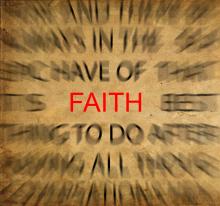Spirituality


As you make your winter reading list or shop for gifts, consider these 2013 books from Sojourners magazine staff and contributors. Or, buy yourself a gift for 2014.

I MEET Yehoshua November in an empty classroom in Touro College in Brooklyn, N.Y., where he teaches. The chairs and desks are piled to one side, like a barricade. We sit in a clearing beside the clutter, talking about his place as the only Hasidic poet—he is a 34-year-old member of the Lubavitch sect—on the American literary landscape, an entity ruled largely by secular academics far removed from the realities and sensibilities of ultra-orthodox Jewish observance and mysticism.
“They are the rabbis of poetry,” November laughs. He laughs so hard he doubles over in his chair. His laughter is as strange as it is infectious. Yet in all of God’s Optimism, his book that was short-listed for the 2010 LA Times Book Prize, there is not a single laugh line. His poems are serious, if lightly held narratives, some parable-like, most down to earth with a longing for heaven.
“Poetry is their vision of spirituality, their own religion, and they don’t want traditional religion brought in,” he says.
Even November’s long, reddish beard seems delighted at their rebellion against traditional religion. An antinomian Hasid and unashamed of it.
When I first read God’s Optimism, the poem I kept going back to was “Baal Teshuvas at the Mikvah” (baal teshuvas are secular Jews who return to religious observance), a poem of solidarity with those intimate others who came to Hasidism through the tunnel of the profane, commonly marked by drug use and sexual looseness, for the sake of spiritual passion held within a net of restrictions.

Desmond Tutu tells a story of when he was nine or 10 years old and he stood with his mother outside a building where she worked as a cook. This was 1940s apartheid South Africa, where black people were considered inferior in all respects. A lanky, white Anglican priest named Trevor Huddleston walked by in a long cassock, saw his mother, and doffed his hat to her.
The white man would have been expected to ignore the black woman, who amounted to nothing in her society. With one simple gesture, he went out of his way to tell her that her society had it all wrong and that she was equally valued and loved.
That moment made a profound impression upon Tutu, who wrote about it in his book, Made For Goodness.
What seem like very small, ordinary acts often have immense and lasting impacts. And every interaction that we have — even with a stranger on the street — can leave some sort of mark, either helpful or hurtful.

Somehow I’ve had the good fortune until recently not to know who Theresa Caputo, (AKA the Long Island Medium) was. The long and short of it, in case you’ve been similarly privileged, is that she has a reality show and claims to speak to dead people. She also has a book, which I saw in the airport bookstore, and tours extensively (including where we are on vacation). Before I knew who she was, just looking at her book cover and the related press around her, I assumed she was the latest in a long string of prosperity gospel preachers.
Not exactly, but kinda.
It got me thinking about what folks like this have in common, be they prosperity-preaching ministers, self-help “Jesus light” media darlings, or channels for the dearly departed from Jersey Shore. Following is a list of traits they all seem to have in common.
THE DAYS shorten and the scriptures get wild and woolly and Advent begins. Meanwhile, the secular holiday season builds in a frenzy of car commercials (does anyone really get a car for Christmas?), sale flyers, and often-forced cheer. Here are a few books—memoirs, spiritual writings, and art—that can be interesting, grounding, and inspiring companions for a complicated time of year. (They also are much easier to wrap than a car.)
Life stories
Good God, Lousy World, and Me: The Improbable Journey of a Human Rights Activist from Unbelief to Faith, by Holly Burkhalter. Convergent Books. Decades in political and human rights work convinced Holly Burkhalter that there couldn’t be a loving God—until she became a believer at age 52.
Hear Me, See Me: Incarcerated Women Write, edited by Marybeth Christie Redmond and Sarah W. Bartlett. Orbis. I was in prison, and you listened to my story. Moving works from inside a Vermont prison.
God on the Rocks: Distilling Religion, Savoring Faith, by Phil Madeira. Jericho Books. Nashville songwriter, producer, and musician Phil Madeira offers lyrical, wry observations on faith and life, from his evangelical roots to musing on a God who “knows she’s a mystery.”

ADVENT IS UPON US: Waiting for the coming of Christ. But do we really know who he is or what his kingdom brings? His Beatitudes from the Sermon on the Mount are good reminders.
Blessed are the poor in spirit, for theirs is the kingdom of heaven.
Luke’s version of the Sermon on the Mount simply has “blessed are you who are poor” (Luke 6:20). Taking Matthew and Luke together, the kingdom will become a blessing to those who are afflicted by both spiritual and material poverty. The physical oppression of the poor will be a regular subject in this kingdom, but the spiritual impoverishment of the affluent will also be addressed and healed. Spiritual poverty is often the result of having too much and no longer depending on God. Jesus offers blessings and healing to those who are both poor and poor in spirit.
Blessed are those who mourn, for they will be comforted.
Those who have the capacity to mourn and weep for the world will be comforted by the coming of this new order. Jesus’ disciples would later hear him say that loving their neighbor as themselves was one of the two great commandments (Matthew 22:39; Mark 12:31; Luke 10:27). To feel the pain of the world is to participate in the very heart of God and one of the defining characteristics of God’s people.
Blessed are the meek, for they will inherit the earth.
Christ’s kingdom turns our understanding of power upside-down. Mary’s Song, the Magnificat, promises the same when she prays about what Christ’s coming means: “He has scattered the proud ... brought down the powerful from their thrones ... lifted up the lowly ... filled the hungry with good things, and sent the rich away empty” (Luke 1:51-53). And when Jesus is asked who will be first in his kingdom, he tells them it will be the servants of all.

For some months now, I have been ruminating on the writer John Podhoretz’s eulogy in Commentary magazine for his sister Rachel Abrams upon her death, from stomach cancer, at age 62. Commentary effectively being the Podhoretz family house organ, and the Podhoretzes effectively being the mythological family of the origin of neoconservatism, the essay would be of interest to anyone interested in cultural and religious sociology — or at least to me.
I, too, come from a family that has also tended to think of itself in somewhat mythological, contrarian terms — This is what Langstons are like — so a meditation from the heart of another large, bustling family is an immediate and natural draw for me.
But lay that all aside. The eulogy wins, and haunts, because it is the passionate remembrance of a sister by her brother. Despite their being part of a prominent East Coast family, its focus is relentlessly on the small acts of family and home that transfigure quotidian existence. Podhoretz dwells lovingly on Rachel as a housewife, a lifetime foul-mouth, an exuberant and dedicated mother, an artist, and finally a writer who let loose with political commentary in her late fifties as online blogs began gathering steam.
“I loved you, Rachel,” he concludes poignantly, in words I could read over and over. “I liked you. And oh, oh, oh, how I admired you.”
So much of that poignancy is derived from direct address to his sister, who is no longer there to receive it. Having just hit 45, Dante comes to mind: midway-through-the-journey-of-our-life-I found myself within a dark wood for the right way had been lost. Who can know how our days are numbered? The lesson for me is that I should tell of how I love my brother John, even as he lives.

Within the evangelical Christian universe, few things are more damning than being labeled 'Legalistic.' The term evokes images of strict rules, ruthlessness, enforced doctrines, unforgiving judges, and worst of all —unpopularity.
When churches, schools, pastors, institutions, and communities are viewed as legalistic, they are demonized and shunned — sometimes rightfully so.
One disturbing trend I’ve noticed — especially among young believers — is to assume that everything associated with a few of legalism’s attributes: structure, requirements, consequences, and work, is legalistic — it’s not.

They’re rarely at worship services and indifferent to doctrine. And they’re surprisingly fuzzy on Jesus.
These are the Jewish Americans sketched in a new Pew Research Center survey, 62 percent of whom said Jewishness is largely about culture or ancestry and just 15 percent who said it’s about religious belief.
But it’s not just Jews. It’s a phenomenon among U.S. Christians, too.
Meet the “Nominals” — people who claim a religious identity but may live it in name only.

After reciting what we call the Lord’s prayer one Sunday, I got to thinking about how many times I’d said those words. Thousands? But how many times have I actually thought about what the words mean?
If we pay attention, it’s a prayer that makes us very uncomfortable.* These words of a peasant Jewish rabbi from 2,000 years ago challenge so much about the way we live — all of us, regardless of what religion we follow. If we’re honest, most of us don’t like it and have no intention of living by what it says.
Which presents a question: Isn’t it a problem if we pray one way and live another? Shouldn’t our prayers reflect how we actually try to live?
Along those lines, perhaps we should rewrite the Lord’s prayer and make it conform to what we really believe. In that spirit, here’s a rough draft of what it might sound like if the Lord‘s prayer was actually our prayer.

After hardline Islamists voiced opposition to the Miss World contest now being staged in Muslim-majority Indonesia, a rival World Muslimah beauty contest exclusively for Muslim women will announce its winner on Wednesday in the capital of Jakarta, though the U.S. candidate suddenly dropped out.
“Muslimah World is a beauty pageant, but the requirements are very different from Miss World,” the pageant’s founder Eka Shanti told Agence France-Presse.
“You have to be pious, be a positive role model and show how you balance a life of spirituality in today’s modernized world,” she said.

So, here's the thing. I just met Rev. Alfred Williams. He's a retired UCC pastor. At 81, he's still preaching and teaching. He's still asking great questions and pushing congregations to do the same. When I am his age, I hope to be as passionate. Hell, I wish I were as passionate now. With that introduction, I want to share this sermon that he preached on Aug.18 of at Ladera Community Church.
I think this sermon serves to blow apart some of our assumptions about generational differences within church leadership. He preached on Mark 8:27-33.

We know neither her name nor the location from which she comes. All we know is that she was “a woman with a spirit that had crippled her for eighteen years,” and that, “[s]he was bent over and was quite unable to stand up straight.” (Lk. 13:11) We don’t know from the text exactly what causes this spirit to lash out at this woman. We do know, though, the power of this spirit is to slowly and deliberately destroy this woman’s life. Whether this spirit manifesting its wicked power in this way is a result of the woman’s sinfulness or was it simply the way she was born we do not know. So weighted down by its power is she that she can’t “stand up straight.”
All we know is that bent over, exhausted, worn, and arid from the despair that comes from the power of this spirit, pushed to the margins of society, and dead inside, this woman comes in from the heat of the day to seek shelter in the synagogue.
They are nameless when they arrive at Magdalene. Seeking shelter – relief – from the power of the spirit whose work it had been to destroy them through drugs and prostitution, they come completely exhausted and desperate. Like the woman in the text, these women of Magdalene live on the edge between death and life. Living in the shadows, under the oppressive weight of the spirit whose power it had been to press the life right out of them, these women, like the woman in this text from Luke, “can’t stand up straight.”

The “secular world” has liars and thieves, adulterers, cheaters, and hypocrites. It’s a place full of child molesters, domestic abusers, and addicts. Where loneliness is rampant, mental illness is on the rise, and individuals routinely try to numb their pain via drugs, alcohol, and sex. Divorce is everywhere, pornography infects the minds of millions, and infidelity occurs on a regular basis.
The church often presents itself as an alternative to the “real world,” a place where these things don’t exist.
Many churches refuse to admit that these problems are affecting them. In reality, there is little statistical difference between Christians and non-Christians relating to these issues. Christians don’t receive a special pass that protects them from experiencing mental illness, suffering, struggling with addiction, abusing other people, being abused, or failing.
Our faith in Christ gives us hope and strength and courage, but it doesn’t erase reality, and it isn’t meant to create a flawless utopia where we can escape from the world’s problems. But many churches attempt to do just that — trying to create the perception of perfection.
In some church communities, there is the appearance that porn, sexual abuse, and rampant sin don’t exist. Even non-sinful things (mental illness, poverty, etc.) are treated as stigmas that are intentionally shunned. This is often misinterpreted as holiness — it’s not.

WHICH SCRIPTURES WILL our biases tempt us to sidestep this month? Perhaps 2 Timothy? Not usually the favorite of radicals. Whether actually written by Paul just before his death or worked up later by followers, the letter has a certain poignancy, suggesting the waning of Christianity’s pioneer phase. The church is in for the long haul. Its faith needs to find forms that can be transmitted across generations. It needs patient leadership that will be consistent in the face of inauthentic mutations of the gospel, religious imposters, and the distraction of futile controversies—hence the emphasis on sound teaching, the internalized treasure of the creed.
Let’s honor this recognition within scripture itself that the gospel needs institutions. The church must even risk banality in some of its teaching practices. A great interpreter of the Christian mystical tradition, Friedrich von Hügel, invites us to respect the way radical teachings have to be given forms that can be handled by regular folks, not geniuses. “Is there not a pathetic instruction in watching the insertion of the copper alloy into the pure gold ... that is, a metal sufficiently resistant to the clumsy handling of the multitude to be able to persist in the transmission of a value, and indeed a precise value, even though it be not the highest. There is surely a pathos here most thoroughly characteristic of the abiding limitations and homely needs of our poor humanity.”

During the Christian spiritual journey, followers of Christ are forced to eventually face some basic faith-related questions. Here are a few of the most common ones:
1) What is salvation?
What does salvation really mean? When does it happen and is it permanent? Do you choose your own salvation or is it predestined? Is everyone saved or just a select few?
The idea of salvation is extremely complex, and our concept of it directly influences how we live, evangelize, and interact with the people around us.

Skepticism is a good and healthy thing, I told every audience. Be skeptical and ask the hard, tough questions about our institutions — especially Washington and Wall Street. But cynicism is a spiritually dangerous thing because it is a buffer against personal commitment. Becoming so cynical that we don’t believe any change is possible allows us to step back, protect ourselves, grab for more security, and avoid taking any risks. If things can’t change, why should I be the one to show courage, take chances, and make strong personal commitments? I see people asking that question all the time.
But personal commitment is all that has ever changed the world, transformed human lives, and altered history. And if our cynicism prevents us from making courageous and committed personal choices and decisions, the hope for change will fade. Along the way, I got to thinking how the powers that be are the ones causing us to be so cynical. Maybe that is part of their plan — to actually cause and create more cynicism in order to prevent the kind of personal commitments that would threaten them with change.
And this is where faith comes in.
A Terrible Thing to Waste
Many U.S. children living in poverty are further penalized by struggling public schools. Nicole Baker Fulgham, former vice president of faith community relations at Teach for America, offers passionate, practical solutions in Educating All God’s Children: What Christians Can—and Should—Do to Improve Public Education for Low-Income Kids. Brazos Press
Holy Disruption
The documentary Bidder 70 tells the story of a different kind of civil disobedience: Tim DeChristopher helped save 22,000 acres of Utah wilderness by outbidding industry figures at a disputed Bureau of Land Management oil and gas lease auction, with no intention of paying or drilling. www.bidder70film.com